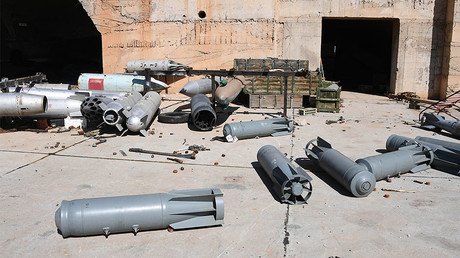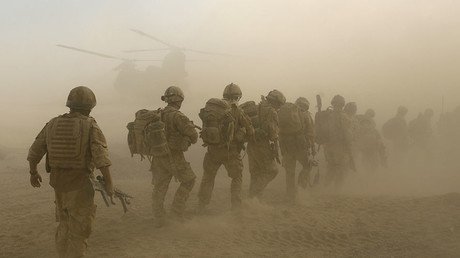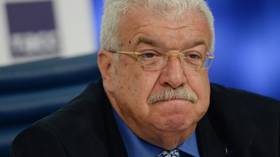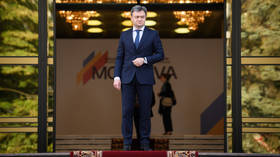SAS mission to destroy Syria’s sarin stockpiles called off in 2013 – sources
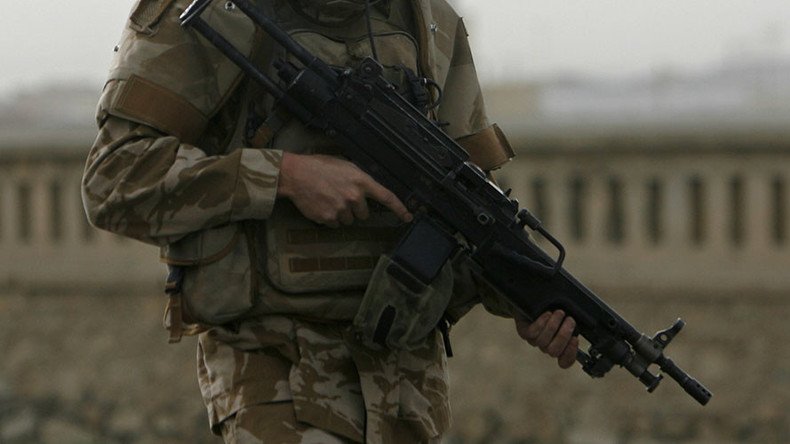
An SAS mission to locate and destroy stockpiles of chemical weapons was called off in 2013 over fears up to half the troops could be killed carrying out the mission, anonymous sources claim.
The revelation comes after US President Donald Trump U-turned on his isolationist stance to launch Tomahawk missile strikes against a Syrian airbase in Idlib province in response to alleged chemical attacks on the rebel-held area.
The 2013 mission was floated but canceled by then-Prime Minister David Cameron in the wake of chemical rocket attacks in the towns of Ghouta and Khan al-Assal that year.
Western governments blamed the atrocities on the government of President Bashar Assad, while Russia and Syria attributed the sarin strikes to rebels.
Military action was debated in the House of Commons but the Conservative government was beaten in a vote due to opposition from Ed Miliband’s Labour and anti-war protests.
The director of Special Forces (DSF) reportedly briefed the Cabinet Office crisis committee, known as Cobra, over a potential SAS mission.
“The aborted 2013 mission was regarded as a real opportunity lost,” an unidentified source told the Mirror newspaper.
“Had the SAS been given the green light they could have destroyed Assad’s ability to access nerve gas and potentially saved the lives of hundreds of innocent people.
“It was a high risk operation but most Special Forces operations are high risk. They were all happy to volunteer. But it was canned as it was regarded as politically unacceptable.”
Also in 2013 the then-Coalition government was accused of laxity when it allowed the chemicals required for the production of Sarin gas to be exported to Syria.
An exclusive report carried by the Independent showed that the Department for Business, Innovation & Skills granted export licenses for potassium fluoride and sodium fluoride.
At the time the department was run by Liberal Democrat Business Secretary Vince Cable.
The shipments were approved the previous year.A spokesman for Cable said at the time that the order of potentially lethal chemicals had met the necessary criteria.
“The exporter and recipient company demonstrated that the chemicals were for a legitimate civilian end-use – which was for metal finishing of aluminium profiles used in making aluminium showers and aluminium window frames,” the spokesman said.
At the time of the previous attacks Trump urged his predecessor Barack Obama not to attack Syria despite the chemical weapons claims.
He pointed out that Obama would need congressional approval to carry out airstrikes within Syria’s borders – an option Trump did not pursue ahead of his own airstrikes on Thursday.
What will we get for bombing Syria besides more debt and a possible long term conflict? Obama needs Congressional approval.
— Donald J. Trump (@realDonaldTrump) August 29, 2013
UK Special Forces deployments are not subject to parliamentary approval. A subject of increasing concern given they are also currently operating in Syria.
A recent report by the Remote Control Project think-tank argued this state of affairs is at odds with the idea of a democratically accountable military and a disaster waiting to happen in a post-Iraq War era when public distrust of secretive power and demand for accountability is high.
